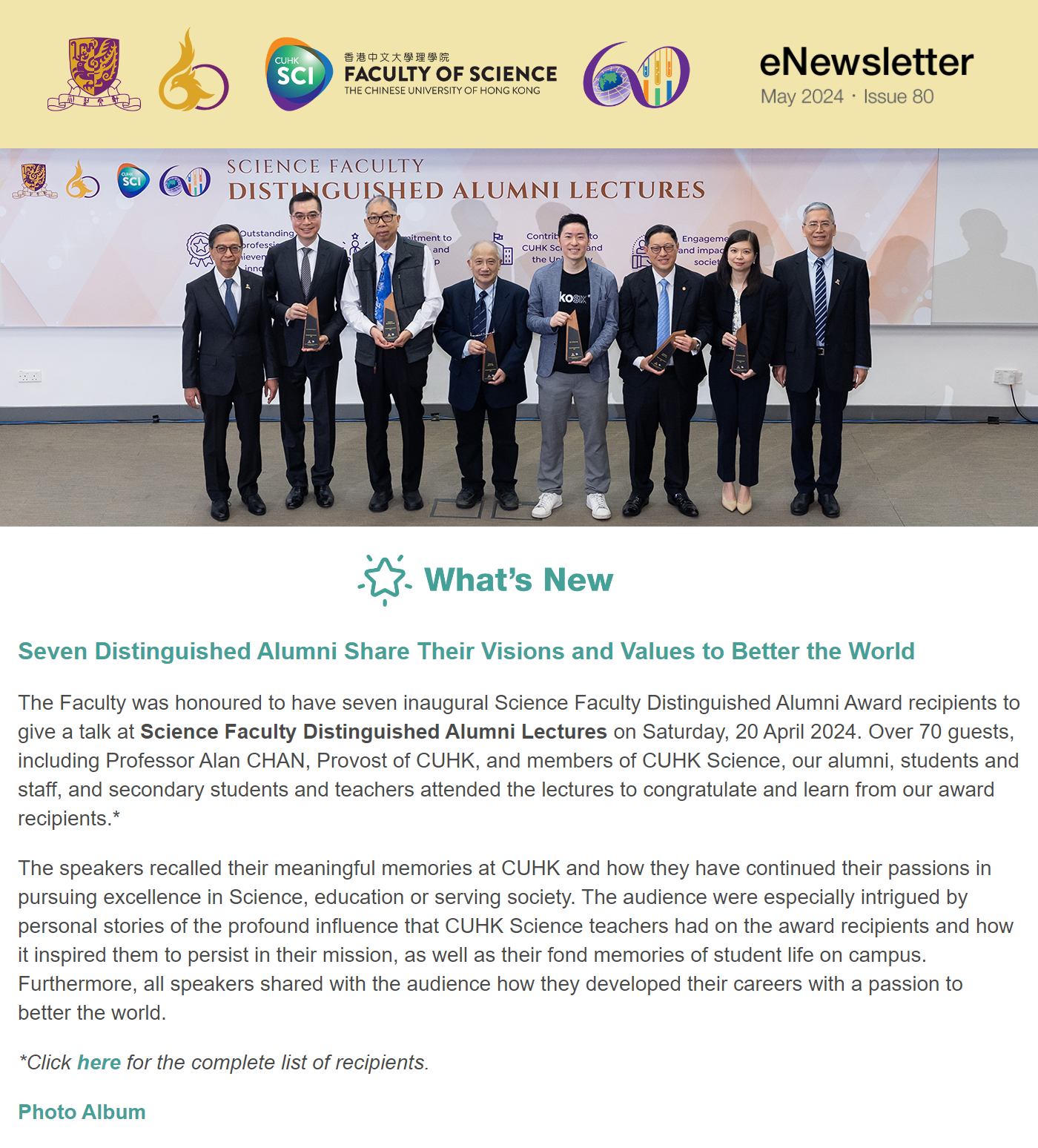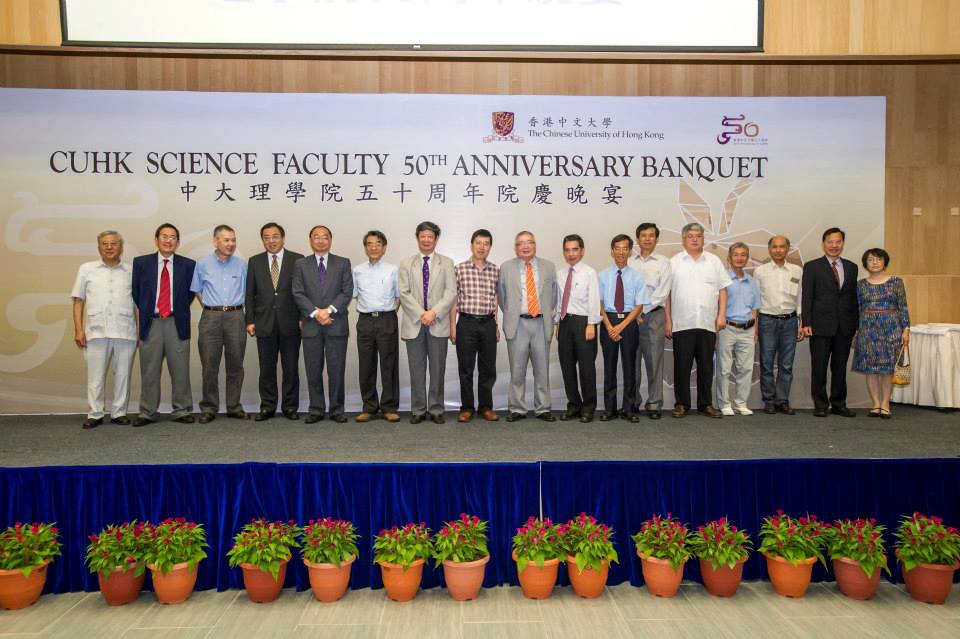Estrogens and Prostate Cancer
Date: 31 March 2010 (Wednesday)
Time: 12:30pm - 2:00pm
Venue: 126, C N Yang Reading Room, Science Centre North Block
Speaker: Prof. CHAN Leung Franky, Professor and Chief, Cancer and Inflammation, School of Biomedical Sciences, CUHK
Abstract: Prostate cancer is a common cancer diagnosed in men, and a major health problem in many Western and also Asian countries. Its incidence rate has been rising rapidly in China and Hong Kong, likely due to increased aging populations and dietary consumption of animal fats. The growth of most clinical prostate cancers is slow and dependent on androgens. Thus, androgen-deprivation therapies and surgical treatment are effective. However, many prostate cancer patients under hormone-therapy will progress to a fatal androgen-independent and metastatic stage when hormone-therapy fails. Although human prostate cancer is generally considered as a mainly androgen-dependent cancer, cumulative evidences suggest that estrogens are also involved in the development and progression of prostate cancer. Paradoxically, estrogens have been traditionally used in the hormone treatment of advanced prostate cancer for over 60 years, largely based on its negative-feedback on the hypothalamus-pituitary-testis axis and achieving a final chemical-castration effect, and is still used in second-line hormone-therapy. The biological effects of estrogens on the prostate, and their roles in the prostate carcinogenesis are complex and could be mediated via their cognate receptors (estrogen receptors) (genomic effects) and the genotoxic estrogen metabolites (non-genomic effects). In this talk, the speaker will discuss on these issues. Besides, he will also discuss some of his recent findings that besides the estrogen-dependent estrogen receptor mediated-pathways, the prostatic epithelial and cancer cells also express another group of orphan nuclear receptors, estrogen-related receptors (ERRs), which are closely related to estrogen receptors and constitutively active independent of estrogens. His recent findings suggest that these ERRs perform certain growth-regulatory roles in prostate cancer and these orphan nuclear receptors could be potential therapeutic targets for this cancer.
For more photos, please click here.














